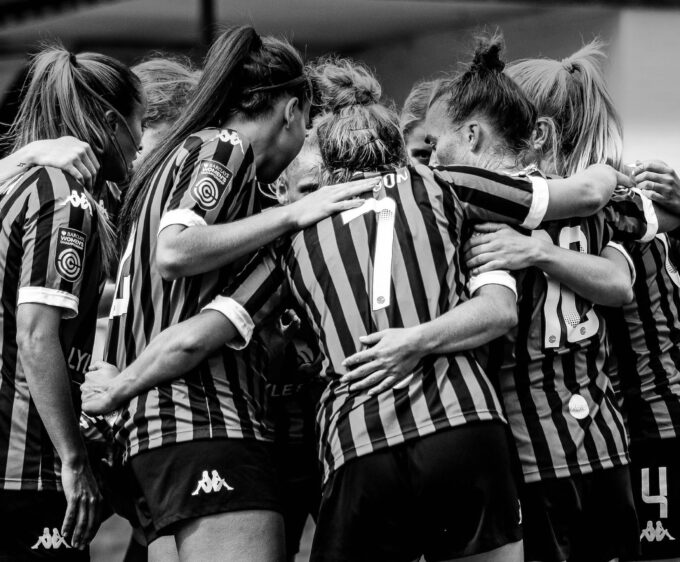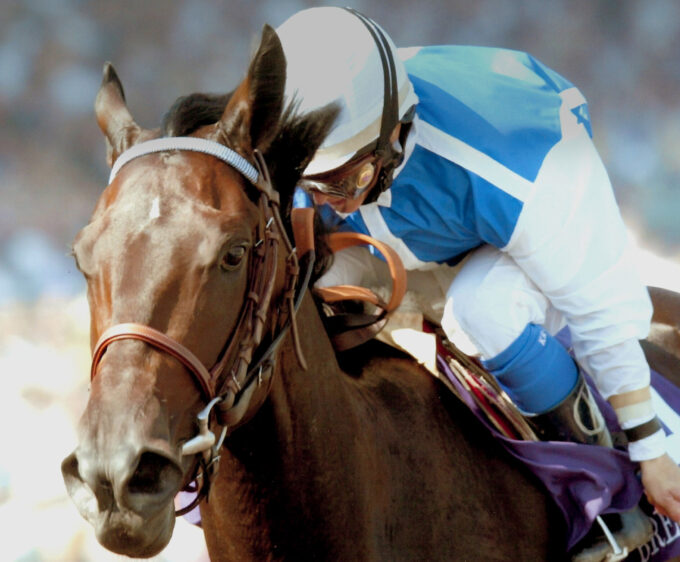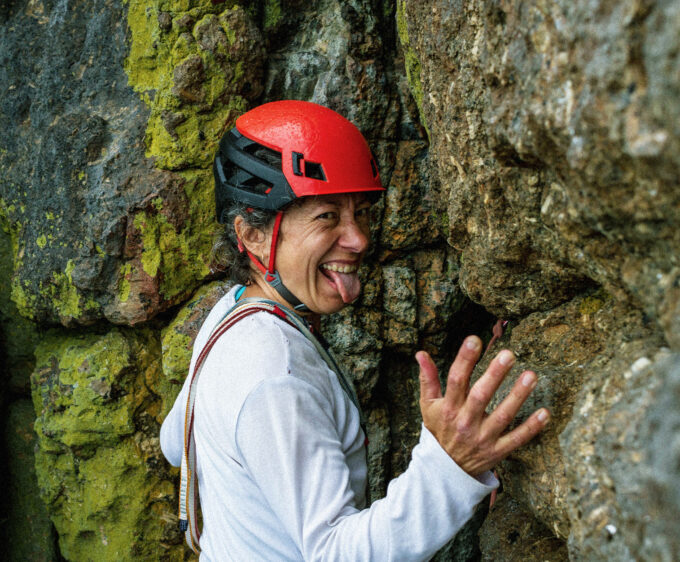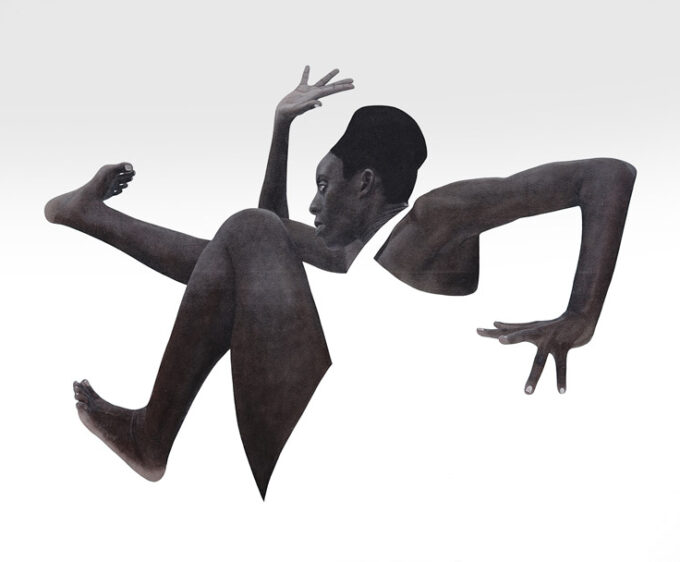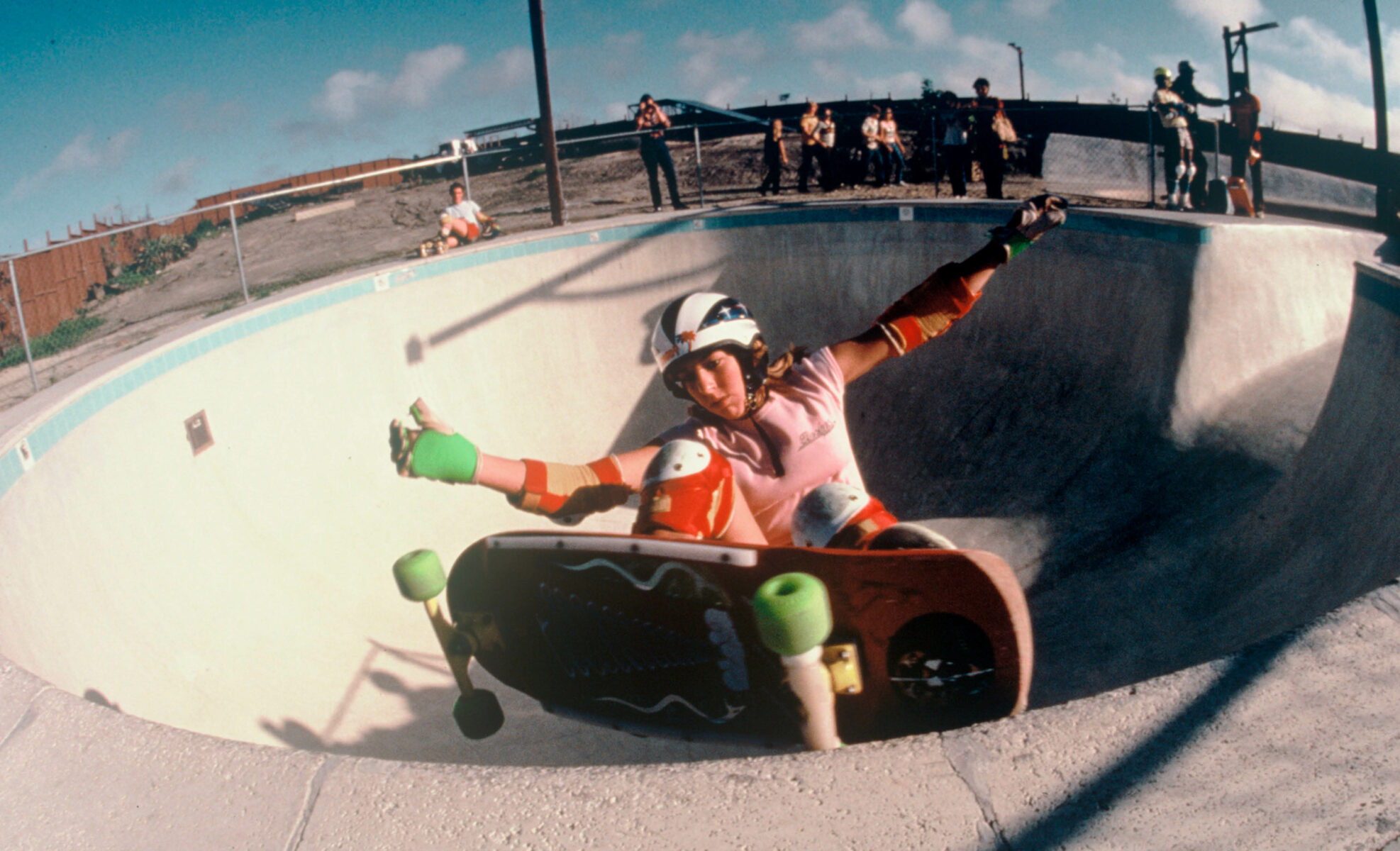
Pioneer: Cindy Whitehead
Cindy Whitehead shattered stereotypes and blazed a trail for female skateboarders. We dive into Cindy's mission behind her movement, Girl is NOT a 4 Letter Word, and unravel the evolving representation of women in skateboarding
By Glorious
Photography by Ian Logan
Skateboard Hall of Famer Cindy Whitehead is a pioneer in the world of female skateboarding and she works tirelessly to empower girls and women in the sport. At the age of 15, Cindy made history as the first girl skateboarder to be featured as a centrefold and a 2-page article in a magazine. We explore her initial shock and the unexpected impact it had on her skateboarding career. From there, we uncover the inspiration behind her movement, Girl is NOT a 4 Letter Word, and how it has grown into a powerful platform for female skateboarders worldwide. Cindy reflects on the evolving representation of women and girls in skateboarding, the challenges they still face, and her vision for a more inclusive future.

Glorious: Aged 15, you were the first girl skateboarder to be featured as a centrefold and a 2-page article in a magazine. How did that feel?
Cindy Whitehead: That centrefold was quite shocking to me. Back in those days, it was unusual for a female skateboarder to be approached by a photographer for a shoot. I even skipped school to do it, but my mum found out and I ended up being grounded for a month. When the magazine came out, I had no idea I would be featured as a centrefold. I knew there was a two-page article where I expressed my thoughts on gender stereotypes in skateboarding, but the centrefold came as a surprise. When the photographer called my mum to inform her about the magazine release, she told him to call back after my grounding period. Looking back, I didn’t fully realise the impact it would have on my skateboarding career at the time. I considered it a cool and lucky experience.
Glorious: So, what impact did the centrefold have on your skateboarding career?
Cindy Whitehead: It helped me to get sponsors because I was able to use the photos from the shoot to create a portfolio. Additionally, some people recognised me in my beach community from seeing the magazine. However, I didn’t really notice a significant change in my interactions at the skate park or with my friends. I didn’t focus on gauging the impact at the age of 15 or 16. But looking back, I realise that having that history and recognition has given credibility to the work I do now for girls in skateboarding, such as the Hall of Fame. It all served as building blocks for each other, although I didn’t see it that way when it initially happened.
Experience

Glorious: What inspired you to create the movement Girl is NOT a 4 Letter Word?
Cindy Whitehead: In 2013, I came up with the name without knowing what I would do with it. My husband encouraged me to write down the name and any ideas that came to mind. Later on, a male-dominated skateboard company approached me with a proposal to collaborate on a skateboard design and donate the profits to girls in skateboarding. I trademarked the name and released the Girl is NOT a 4 Letter Word cruiser skateboard, the first skateboard under the movement. From there, we formed a team of girls and started using Instagram as a platform to showcase diverse female skateboarders. This eventually led to the creation of a website, a blog, a clothing line, and even a book. The book was something I always wanted to do because I felt there was a lack of inspiring images of women skateboarders when I was growing up. The movement grew organically, and I’ve been able to collaborate with other photographers and skaters to promote female representation in skateboarding.
Glorious: Can I ask you about the title Girl is Not a 4 Letter Word? Girl is a 4 letter word!
Cindy Whitehead: The title is a response to the way people often use the word “girl” as an insult. They say things like “you skate like a girl” or “you’re pretty good for a girl.” They use “girl” as a derogatory term. So, I turned it around and made it into a positive statement. When I was growing up, boys would often say things like “you throw well for a girl” while playing baseball. By reclaiming the word and using it in a positive way, we challenge the notion that being a girl is somehow inferior.
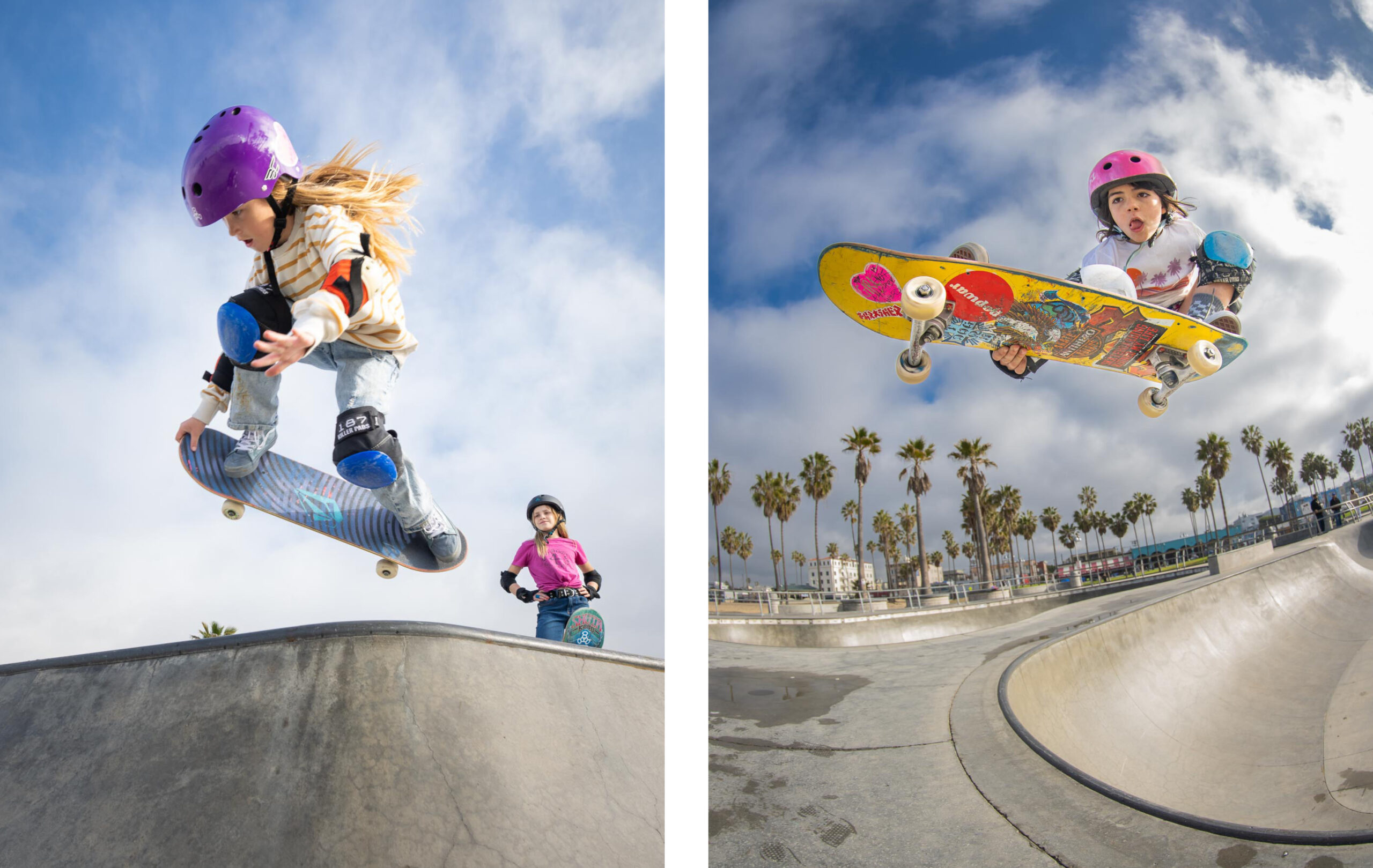
Diverse
Glorious: You have several girls on your roster, so how does the movement operate?
Cindy Whitehead: The way it works is that often people express interest in being part of our movement. We refer to them as a team and each team member has a bio on our website, which includes their stats and links to their Instagram profiles. Sometimes individuals approach us, while other times we spot talented individuals and express our desire to work with them. Additionally, having my husband as a sports photographer gives us an advantage. He can do photo shoots with the girls, and we have a collection of images that we can control and distribute to them without any cost to their parents.
Some guys from my era have taken on roles as videographers or photographers, and they offer their services to parents for a fee. I have no issue with that arrangement, however, not everyone can afford to pay $200 or $250 regularly. We organise photo shoots where the girls come together, among other activities and as a result, I end up engaging in one-on-one conversations with them frequently. Another way that we worked on highlighting these skater girls was by putting their images on huge billboards in LA and in Times Square, NYC. We didn’t include our logo, we simply wanted to draw attention to the fact that girls skate too and for people seeing these girls, larger than life, to have a conversation starter.
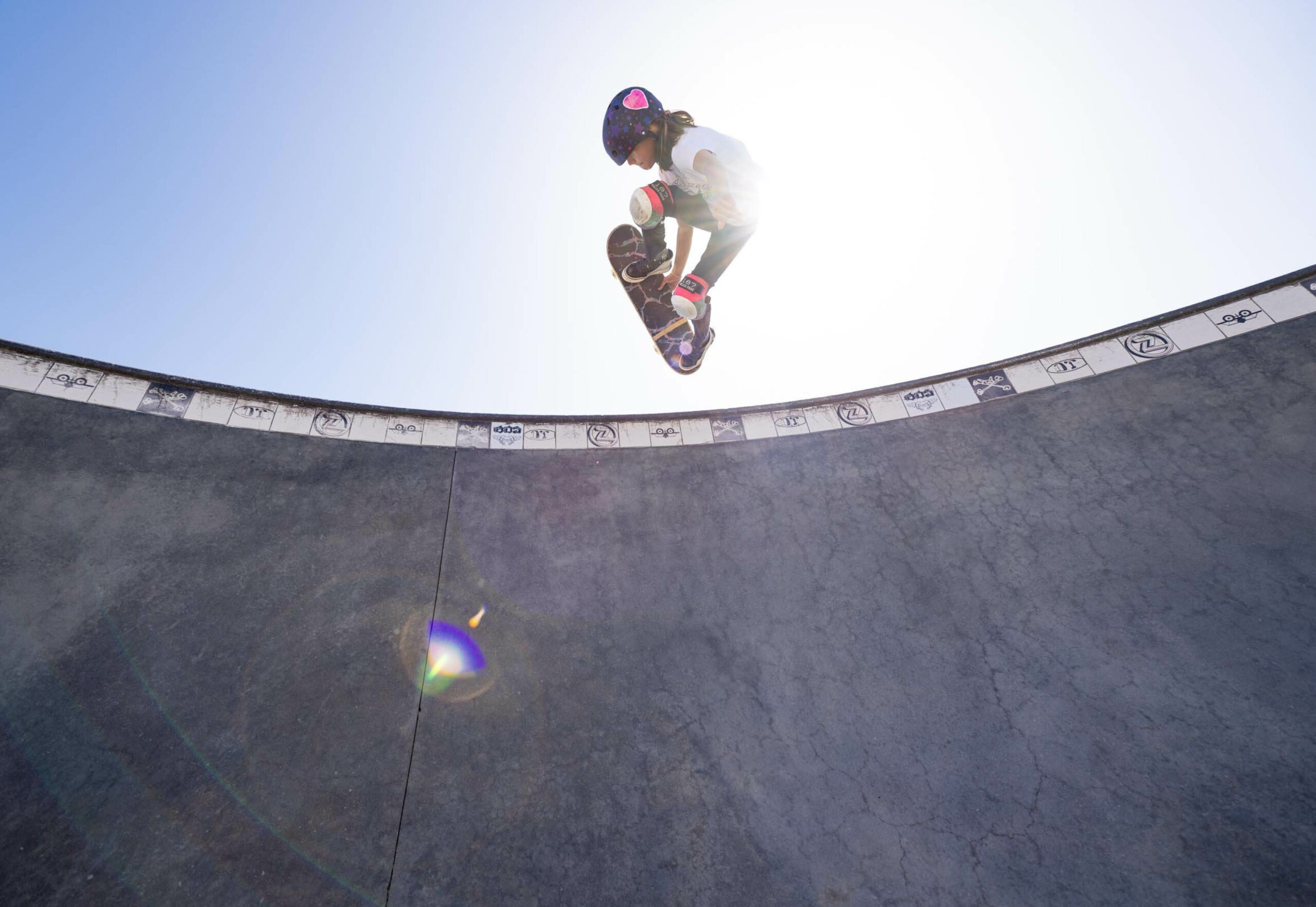
Glorious: How is Girl is NOT a 4 Letter Word funded?
Cindy Whitehead: Initially, my husband and I funded it ourselves. We had a pro skater from Australia who became the face of our vision for younger girls. We offered her financial support for her contest placements to help fund her travel, as she was flying back and forth between Australia and the U.S. regularly. However, the money we received from our collaborations with the skateboard brands was not yet bringing in enough money to cover those wins, so my husband and I were funding this ourselves (out of pocket) for a bit. We made her a promise, so there was no going back and saying, “Sorry, the movement is not quite there yet financially.” We also became fiscally sponsored, turned the initiative into an LLC, and launched a clothing line to generate funds. We received a grant and are working on securing additional grants. We organise demos where people can donate, and we have in the past allocated the funds to various needs such as supporting girls’ participation in Olympic qualifiers. Now we invest in organising bigger events, partnering with other organisations, and funding projects that create more visibility for women’s skateboarding. The money we receive goes to different initiatives, such as helping individuals who embark on unique projects or journeys related to skateboarding.
Glorious: You’re working with girls, giving them a platform to succeed in skateboarding. Do you also encourage women to skateboard?
Cindy Whitehead: When it comes to the Olympics and similar events, we use the term “girls” loosely. Skateboarding is starting at a younger age now. Lizzie Armanto is considered a veteran skater at 30 years old and she’s still competing. We also have women on our team, like 40-something Kat Folsom, a mother of three who has a halfpipe in her backyard. We even help to sponsor a 63-year-old slalom skater who goes to Worlds. So, we support adult women as well as those in the middle ground who aren’t aiming for the Olympics but simply enjoy skateboarding. For example, there’s a young lady named Zoe from New Jersey who organises an annual festival for girls skateboarding, and we support her events. We also co-organise women and girls skate days in Venice, where we close down the skate park and provide a free, inclusive space for skating. We have sponsors who contribute to these events, and over 100 women usually attend.
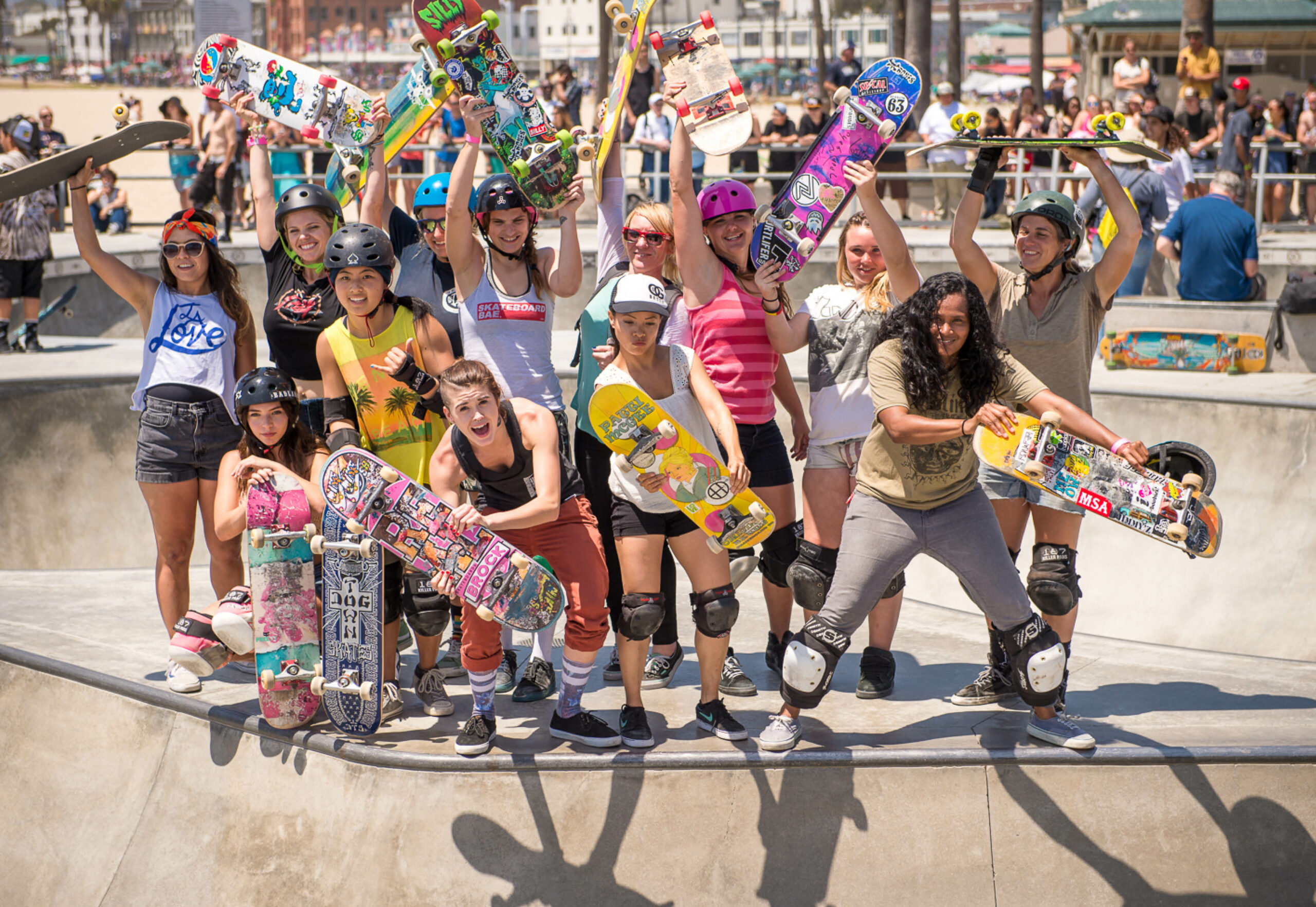
Glorious: What role do you think skateboarding has in empowering girls and women in sport?
Cindy Whitehead: I believe skateboarding is incredibly beneficial mentally and physically. It teaches you individuality because there’s no team practice. It teaches you how to fall and get back up and encourages creativity and the belief that you can do anything you want. There’s no right or wrong way to skate. It instills perseverance and a never-give-up attitude. I recently read a quote from a pro skateboarder in his 30s about how skateboarding shapes your life as an adult. It resonated with me because it captures the essence of not giving up, even when you face challenges. Skateboarding is also unique because it’s often male-dominated. When you skate, you’re often competing with guys and fighting for space. As women get older and continue skateboarding, I hope to see more representation in leadership positions within the industry.
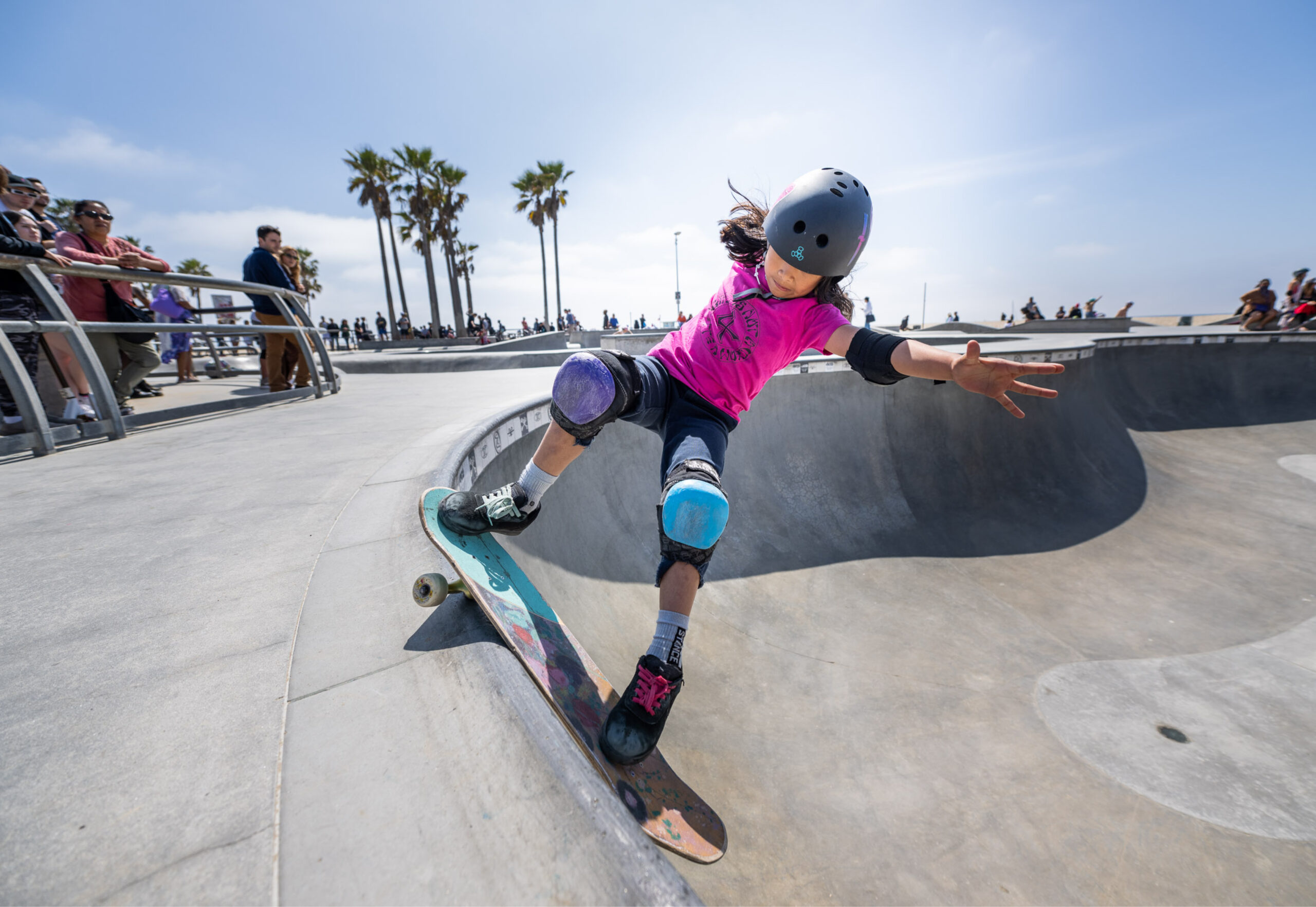
Cindy Whitehead: The representation of women and girls in skateboarding has improved over time. Platforms like Instagram have played a significant role in making female skateboarders more visible worldwide. The inclusion of skateboarding in the Olympics has also helped by requiring equal representation of men and women athletes. However, it’s important to note that skateboarding is not yet an official Olympic sport until 2028, and there are still financial challenges that female skateboarders face. While progress has been made in terms of visibility, achieving equal pay for female skateboarders outside of contests remains a work in progress. There are top female pros who have gained recognition and sponsorships, but the financial aspect still needs improvement for the broader skateboarding community.
Skateboarding requires a lot of travel, especially with the upcoming Olympics. If a girl wants to compete in the Olympics, she needs financial resources, and not every family can afford that. So, my fear is that skateboarding will become a sport only for the rich. Skateboarding has always been an underdog sport, very scrappy and underground. However, with the Olympics and the need to attend various qualifiers, many talented skaters may be excluded due to financial constraints. Unlike team sports where money is often raised collectively, skateboarding faces a different situation. Some countries are stepping up and providing support, but it’s still not enough. Another challenge is that skateboarding is still predominantly male-dominated, which creates additional barriers for women and girls.
INDIVIDUALITY
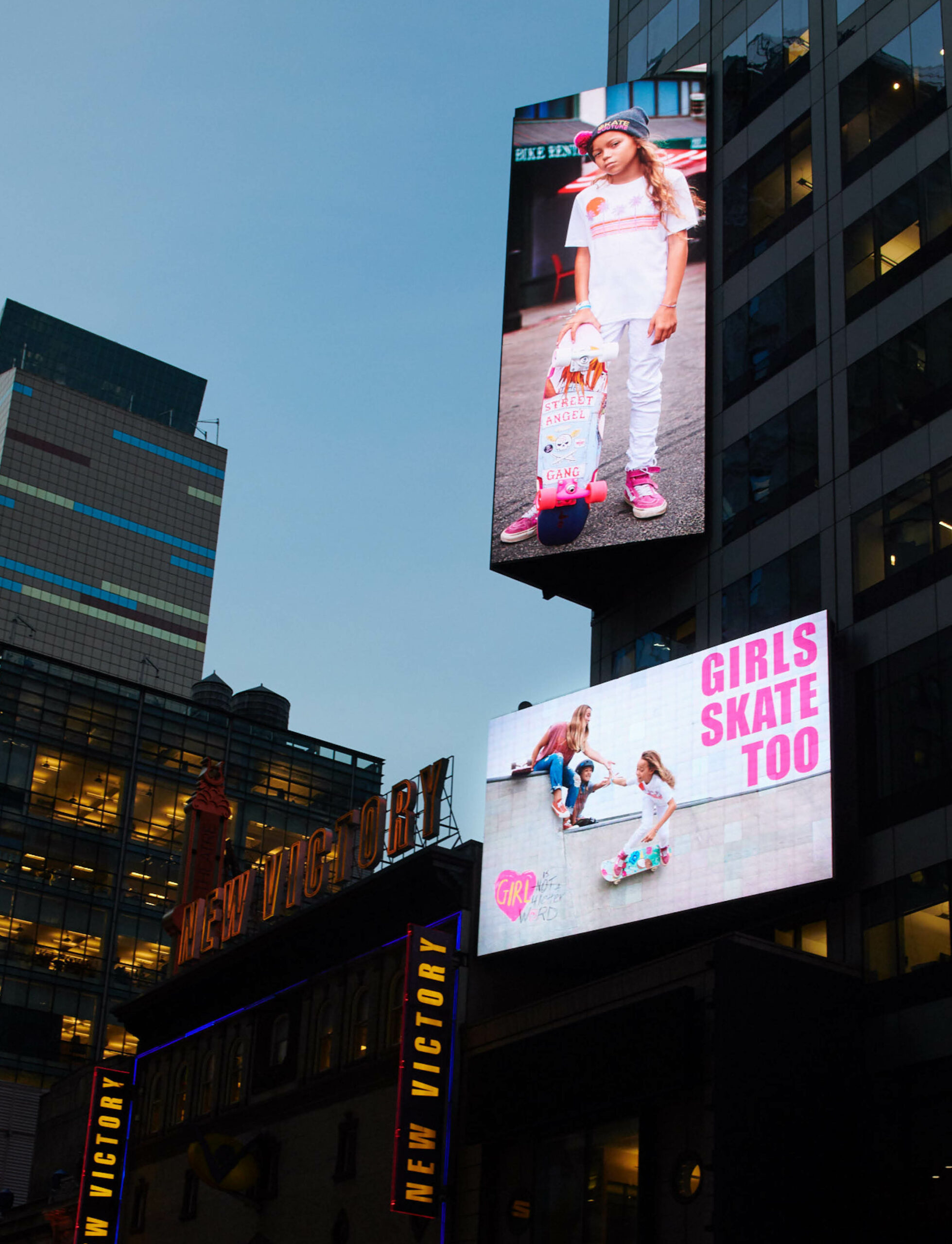
Glorious: Have you encountered any resistance or pushbacks over the years?
Cindy Whitehead: Yeah, I have. When I was younger, I wasn’t really aware of it because I grew up with all boys, including my brother. I used to wear big clunky headphones when I skated because we didn’t have earbuds back then. I did that to block out anything negative people would say. There were a lot of people watching me skate, and some would make inappropriate comments like, “Oh my god, it’s not a girl’s sport,” or things like that. So, I just chose to ignore it. I think it was also because I was raised by strong women who taught me to be strong and ask for what I wanted. If someone said no, I would just move on to the next thing. As an adult, I see these issues more clearly. Even recently, I’ve faced situations where people don’t prioritise my time or treat me with respect. It’s frustrating, but I don’t brush it under the table. I acknowledge it and address it.

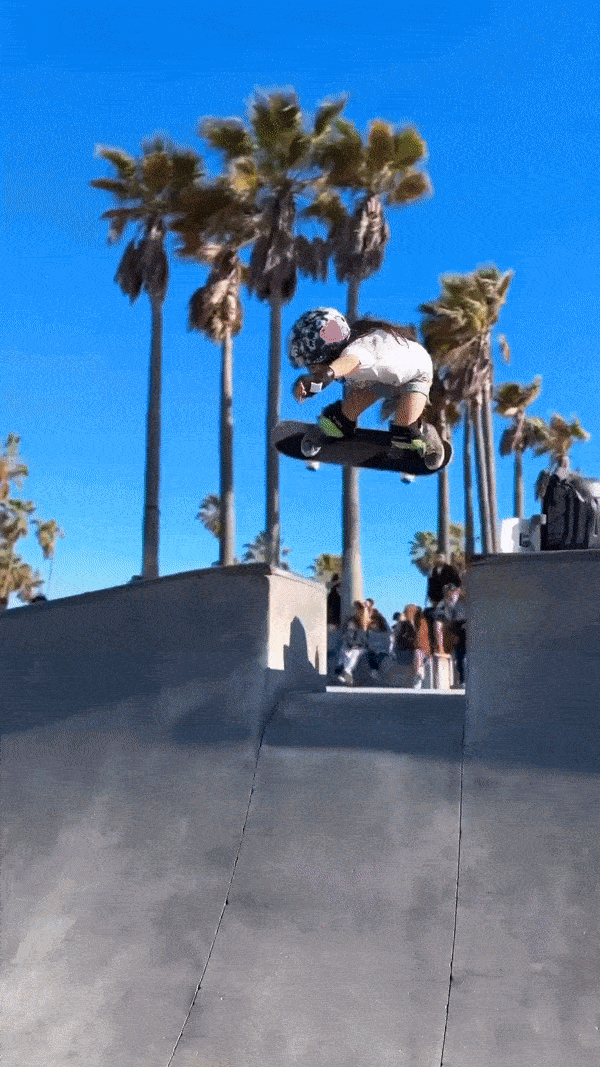
Glorious: What do you want to achieve from Girl is NOT a 4 Letter Word and what is your vision for female skateboarding in the future?
Cindy Whitehead: Initially, the goal was to increase visibility for women and girls in skateboarding, especially those who don’t fit the traditional skateboarder image. That is still the primary goal, but it has expanded to include financial support and opportunities. I reach out to companies like Vans, advocating for sponsorship deals for talented skaters who may not be asking for money yet but could benefit from support. It’s about creating opportunities and connecting the right people and brands.
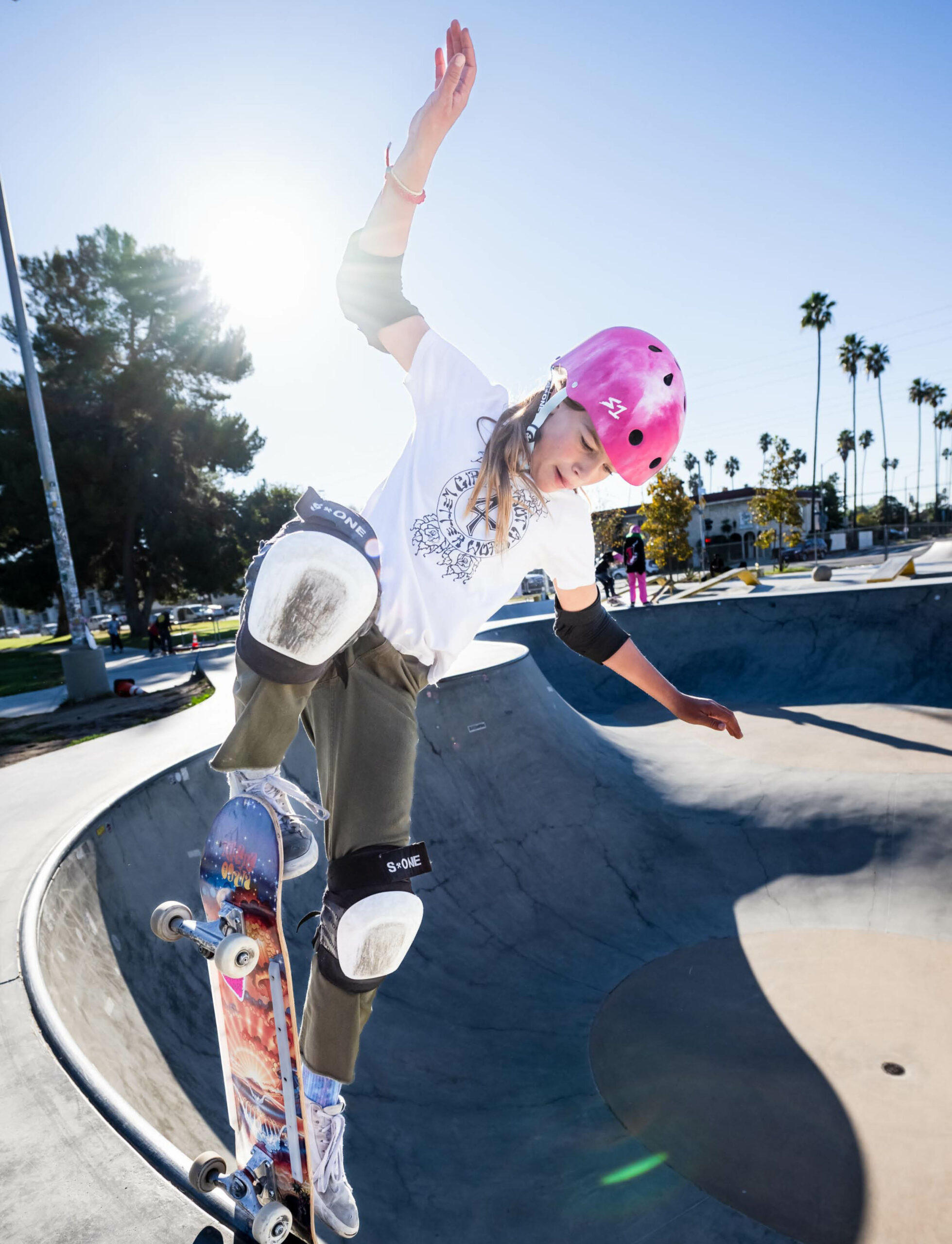
My vision for the future is that if I were to ask someone from the general public about their favourite skateboarder, they would mention a female skateboarder. I love Tony Hawk, but it gets tiring when people assume that there isn’t a pro female skater we should also be talking about. I want more girls and women to be recognised and become household names. I think we are making progress in that direction, but we still have a long way to go. Additionally, it’s important for them to receive equal pay outside of competitions, which is a relatively new development. Before the pandemic, equal pay in contests was already established, thanks to initiatives like Vans Park Series, which ensured equal pay for both men and women. However, there was resistance from some male skaters who felt the money would be better spent on the men’s side. But it’s crucial that women receive equal opportunities and financial support in skateboarding.
RESISTANCE
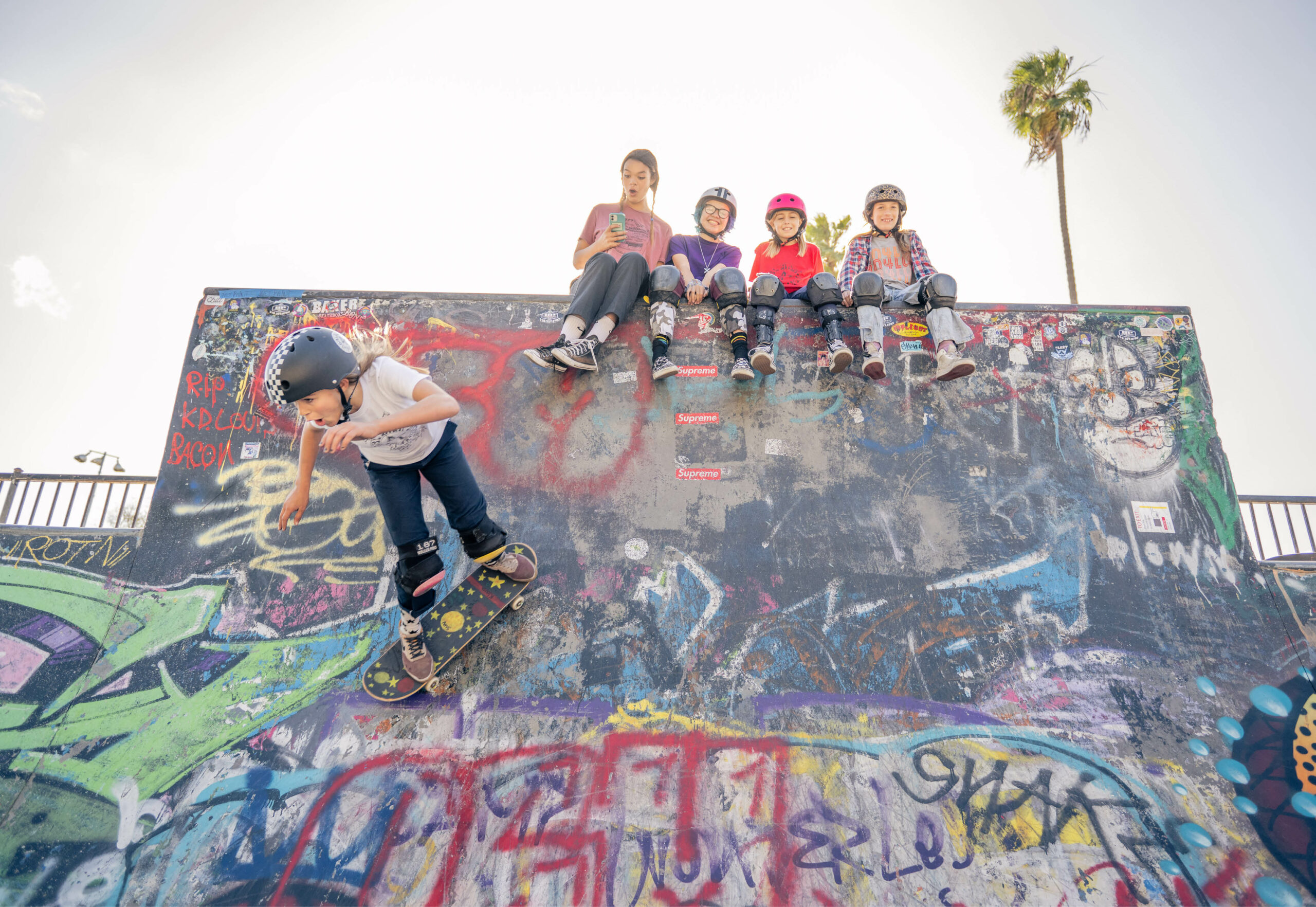
Editorial Design this is root
Title Image by Brad Bowman – Cindy Whitehead, Marina del Rey Skatepark Circa 1980
